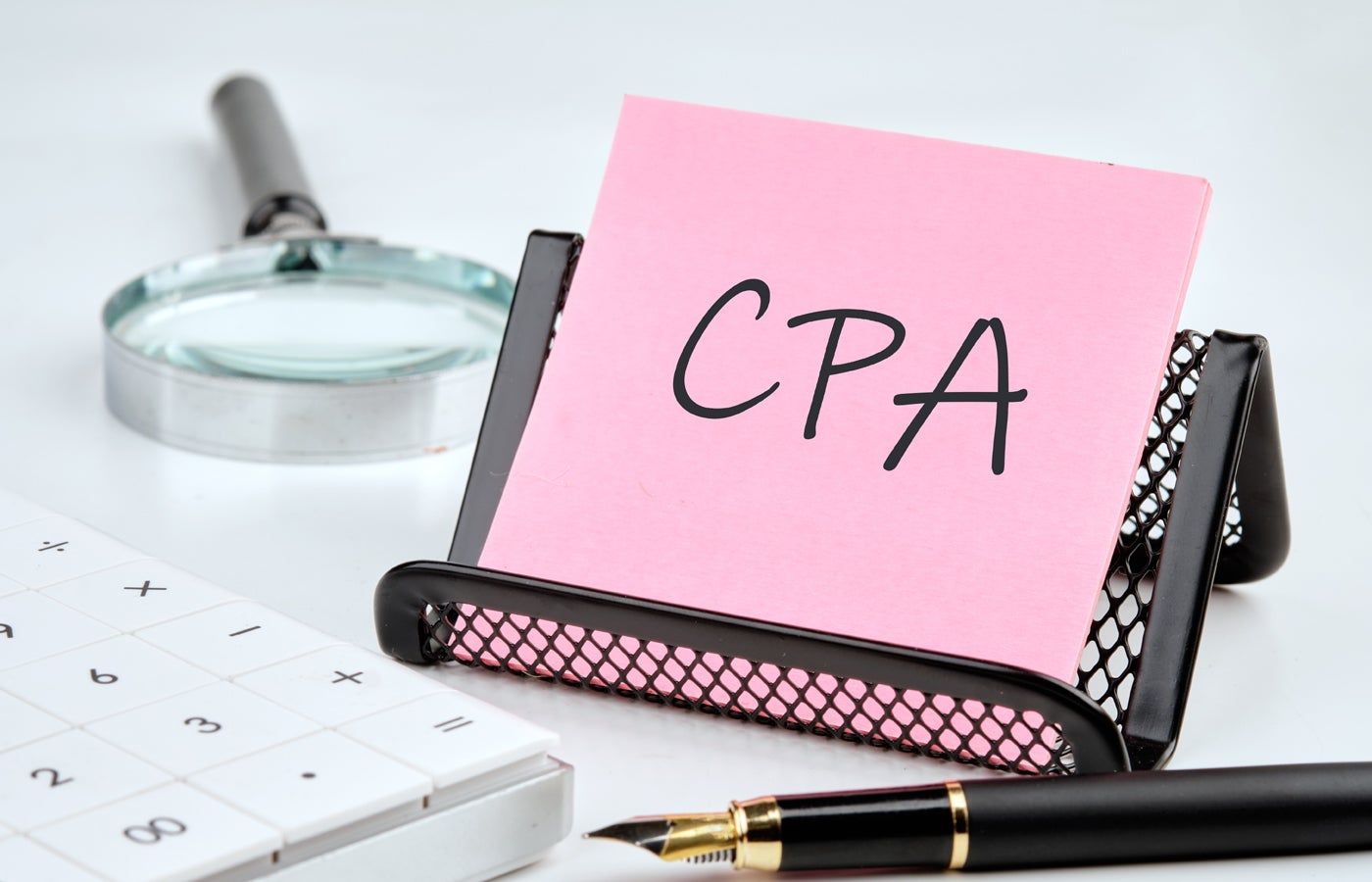If you're a small business owner trying to navigate accounting software or just an individual doing your taxes, you've probably thought about contacting a certified public accountant, also known as a CPA.
But what does it really take to become a Certified Public Accountant and what sets you apart from regular accountants? In this guide, we explain what a CPA does and how accountants can become CPAs.
quick books
Employees by company size
Micro (0-49), Small (50-249), Medium (250-999), Large (1000-4999), Business (5000+)
Micro (0-49 employees), small (50-249 employees), medium (250-999 employees), large (1000-4999 employees)
Micro, Small, Medium, Large
Characteristics
API, general ledger, inventory management
Acumatica Cloud ERP
Employees by company size
Micro (0-49), Small (50-249), Medium (250-999), Large (1000-4999), Business (5000+)
Micro (0-49 employees), small (50-249 employees), medium (250-999 employees), large (1000-4999 employees)
Micro, Small, Medium, Large
Characteristics
Accounts receivable/payable, API, departmental accounting and more
What is a certified public accountant?
CPA stands for “certified public accountant.” The CPA degree is a professional certification issued in the United States. It is awarded to individuals who have passed the CPA exam and met their state's licensing requirements for training and experience. Typically, CPAs are only licensed in one state, but reciprocity laws may allow them to be licensed in other states. To maintain their CPA designation, CPAs must complete continuing education requirements and maintain a standard of accounting ethics.
Earning a CPA certification opens up many opportunities for accountants both in terms of salary growth and upward mobility. While it is not necessary to obtain a CPA to practice as an accountant, many clients specifically seek a CPA because the license shows an unconditional commitment to accounting specialties and industry best practices. For this reason, many companies also require their in-house accountants to have a CPA license, especially if they want to be promoted to higher-paying leadership positions.
However, one characteristic that distinguishes CPAs from other accountants is the ability to represent their clients in any dispute or communication with the IRS.
Use QuickBooks to manage your accountingIf your company isn't about to hire a certified public accountant or an in-house accounting team, QuickBooks might be a more viable solution. QuickBooks automates accounting tasks, helps track and file taxes, and produces useful financial reports to help you stay on track. And once it has expanded enough to require expert help, a CPA or bookkeeper can continue using QuickBooks to manage their company's finances or easily export what they need from the software. |
What does a certified public accountant do?
Certified public accountants can cover a variety of accounting tasks, and their particular specialties depend on their interests and career opportunities.
For example, some CPAs choose to focus on preparing taxes for clients, while others focus on certain aspects of accounting, such as internal auditing, income tax, or forensic accounting. Instead, some may specialize in following senior management, working their way up from financial manager to chief financial officer. And because accounting can come in many shapes and sizes, CPAs can even choose between personal accounting, small business accounting, mid-sized business accounting, and corporate accounting.
Whatever career path they choose, the goal of all CPAs remains the same: to support the financial health of the company while meeting or exceeding all legal, professional and ethical accounting standards. CPAs play a key role in protecting businesses and individuals from financial and legal liability.
What are the responsibilities of a certified public accountant?
The daily work of a public accountant will vary greatly depending on their job and specialization. Below are some responsibilities that a certified public accountant might have:
- Examine financial records to prepare tax returns or audit reports.
- Prepare tax returns and file them with the appropriate federal, state and local governments.
- Prepare other financial records, such as budget reports and quarterly earnings reports.
- Advising clients on taxes and financial decisions.
- Review of financial accounts to identify and correct discrepancies.
- Conducting forensic examinations to complete audits and detect financial crimes.
CPAs may use accounting software, such as QuickBooks, or their own manual systems to perform these tasks, or if they work for a company, they may use in-house software.
How to become a certified public accountant
1. Get an applicable degree
The first step to becoming a Certified Public Accountant is to earn a bachelor's degree that includes at least 150 credit hours of coursework. It is recommended, but not required, that you major in accounting or business, as you must complete a certain number of accounting-related credit hours. This exact number of hours varies from state to state and is set by each state's board of accountancy.
You may consider pursuing a graduate degree in accounting to increase your chances of passing the CPA exam on your first attempt. However, a graduate degree is not required to sit for the CPA exam, and there are training courses that are specifically designed to help you study for the CPA exam if you need additional help.
2. Take the CPA Exam
The CPA exam is issued by the American Institute of Certified Public Accountants (AICPA). The test consists of four parts: three 4-hour core sections and one 4-hour discipline section of your choice. The main sections are Audit and Attestation (AUD), Financial Accounting and Reporting (FAR) and Tax and Regulation (REG). The Discipline sections you can choose from are Business Analysis and Reporting (BAR), Information Systems and Control (ISC), and Tax Compliance and Planning (TCP).
You do not have to take all parts of the CPA exam at the same time, although you can schedule multiple parts for the same day if you wish. However, most people find it easier to take one part of the exam at a time so they can focus on studying just one set of topics. Once you pass the first part, you will typically have 18 months to pass the other three and complete the exam.
3. Meet the final requirements and obtain your license
Once you pass all four parts of the exam, it's time to get your license. This process varies from state to state, although it generally requires you to complete one full year of work experience as an accountant. In some states, you must gain certain types of experience, such as auditing, to obtain your license.
4. Keep your license
Once you have your CPA license, you will need to renew it every one to two years to keep it current. Most states require some type of continuing education to prevent your CPA license from expiring, so check state guidelines for more information.
Grow your accounting business with XeroAccountants can partner with Xero to get the most out of their business, simplifying accounting tasks while managing client accounts with ease. With Xero's many automations, you can open your schedule to more clients. Plus, if you decide to bring other accountants into your business, you'll be able to effortlessly collaborate and stay connected through Xero online. |
CPA vs. Accountant: What's the Difference?
All CPAs are accountants, but not all accountants are CPAs. There is no professional standard for calling yourself an “accountant,” so anyone who does even a little bit of accounting work can call themselves an accountant. Most accountants have typically earned a bachelor's degree in accounting, but not all have necessarily earned one. Before hiring an accountant, it is always a good idea to check their education and work history to see how much experience they have.
In contrast, CPAs are licensed by a professional governing body (AICPA) and are held to both professional and fiduciary standards. They must meet certain educational requirements, pass the initial exam, and meet continuing education requirements to maintain their license. In other words, the standards for CPAs are much stricter than those for general requirements.
Because of their more advanced training and education, CPAs can do some things that an accountant cannot, including signing tax returns and representing an individual or company before the IRS. Before hiring someone, carefully consider your business needs to determine whether you need an accountant or a certified public accountant.
But if you're still not sure you need the services of a professional, accounting software is a popular and affordable solution for many businesses. Accounting tools can also grow with your business as your needs change, even if you end up hiring an accountant or CPA later.












